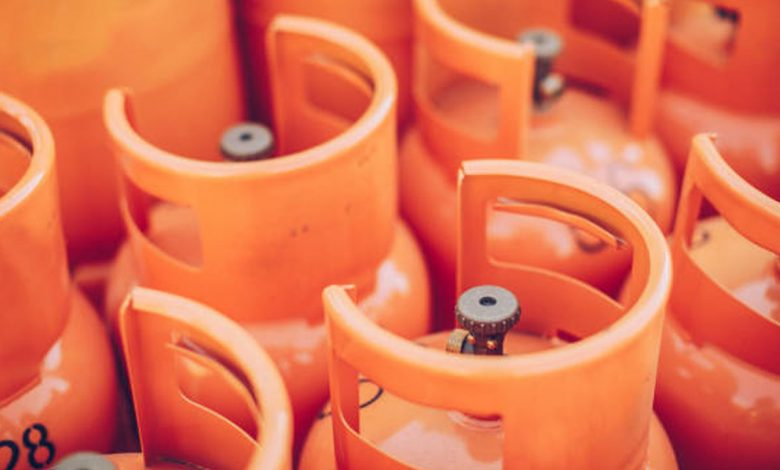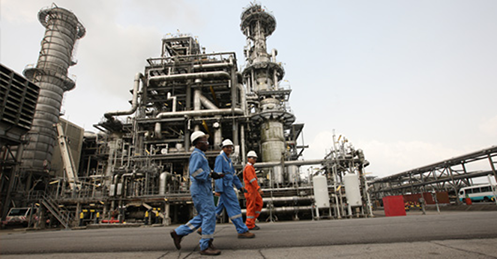It is believed that the major and most significant factor in the energy sector is that Nigeria has made a significant stride towards developing gas utilization and penetration in the country through “Nigeria’s Decade of Gas.” Notwithstanding, ODIMEGWU ONWUMERE reports that there are as yet a few difficulties to the upswing, going from guideline issues, cost of establishment, issues with facilities, and a lot more that are making citizens purchase cooking gas through their noses at an unregulated cost
He was not tongue-in-cheek to inform the citizens to brace up for the skyrocketing costs of Liquefied Petroleum Gas (LPG) commonly called cooking gas that would come a week later.
His apprehension for declaring that was there was increasing worldwide taxes, charge proportions and vessels, a forex shortage, and naira devaluation, among numerous other variables. His final word was “sad” over the inevitable cost increase.
Mr. Olatunbosun Oladapo was not satisfied with making these things known in August, as the Leader of the Nigerian Association of Liquefied Petroleum Gas Marketers. Like a proclaimed war that was to come, he said, “It is beginning one week from now since international costs have gone up. Customers are currently getting back to firewood, charcoal, and sawdust for cooking.”
There was a feeling of pity in his voice that the majority are going through a ton of trouble ensuring they have cooking gas without the authorities doing a lot to give the populace a delicate arrival through palliatives, decreasing expenses, and imposing. He lamented that for each kg of gas evaluated at N700, the expense would be N3.50. “How much is left in such a business?” he asked.
This was coming up when months prior, reports by the National Bureau of Statistics (NBS) on cooking gas May 2023, said normal retail cost for topping off a 5kg Cylinder of Liquefied Petroleum Gas (Cooking Gas) declined by 6.07% on a month-on-month premise from N4,642.27 recorded in April 2023 to N4,360.69 in May 2023. On a year-on-year premise, this rose by 11.20% from N3,921.35 in May 2022.
There was fear that Nigeria’s Decade of Gas, a pet project of the immediate past President Muhammadu Buhari that expressed January 1, 2021 to December 31, 2030 as a period the public authority tries to speed up gas creation and utilize same to handle energy neediness, industrialize the nation, make occupations, lift 100 million Nigerians out of destitution, and at last set the economy on the way to success, was wheezing for breath.
Inside the public authority’s circle, there was no outsider access to determine a code of the gas network issues, and doing so would require $20 billion a year to bridge Nigeria’s gas infrastructure to accomplish the ideal gas development.
Stressed by that, the Nigeria Extractive Industries Transparency Initiative (NEITI) was concerned, through its Executive Secretary, Dr. Orji Ogbonnaya Orji, at the Policy Dialogue on Nigeria’s Decade of Gas, organized by the Natural Resource Governance Institute in partnership with the African Initiative for Transparency, Accountability, and Responsible Leadership (AfriTal) in Abuja in August, saying that there was a dwindling petroleum product venture scene without the government authorities standing firm to characterize the infrastructure to be focused on.
According to the source, “The arrangement was misty, shielding its market-driven opportunities that wouldn’t successfully translate the gas plans into sustainable economic development, on the grounds that the functionality wasn’t customized to incorporate explicit availability across upstream offices to handling, power plants, and opposite end clients.”
The Founder and CEO of Hyde Energy Limited, a downstream oil and gas organization, Mr. Oladimejj Edwards, credited the significant expense of cooking gas, to the deficient stock, stockpiling, and circulation framework as well as shortage of dollars on the lookout.
According to him, “For example, topping off the 12.5 kilogram LPG cylinder, which is the commonest among the working class, has been costing a fortune.”
Furthermore, the typical retail cost for topping off a 12.5kg cooking gas increased on a year-on-year premise by 60.69 percent from N6,164.97 in September 2021 to N9,906.44 in September 2022 and by 2023, checks revealed that the average retail price for refilling a 12.5kg gas cylinder, increased by 0.09% on a month-on-month basis from N10,253.39 in February 2023 to N10,262.56 in March 2023.
Examination has shown that the public authority strategy appeared to be doomed with the concerned specialists with the responsibility in ensuring that the gas project was a triumph panting for breath, exhausting their energy on calls for additional joint efforts and mediations from gas financial backers, industry administrators and partners to further develop homegrown gas usage.
The Executive Director, Nigerian Midstream and Downstream Petroleum Regularly Authority (NMDPRA), Farouk Ahmed, settled on the decision in Port Harcourt during partners’ commitment on gas use in Nigeria. Ahmed concurred that more needed to have been done to guarantee that gas was conveyed to Nigerians at extremely less expensive rate, yet kneading his inner self and those he represents, saying the endeavors of the Petroleum Industrial Act (2021), which was laid out inside mainstream and downstream gas infrastructure assets to catalyze gas speculations was huge.
The Executive Director, Distribution Systems, Storage and Retailing Infrastructure, NMDPRA, Ogbugo Ukoha, uncovered that one of the difficulties of gas use in Nigeria was that the entry barrier and beginning capital expense was exceptionally high.
The Nigerian Midstream and Downstream Petroleum Regulatory Authority, NMDPRA, (Otherwise known as “The Authority”) was created in August 2021 in line with the Petroleum Industry Act 2021 which provides legal, governance, regulatory and fiscal framework for the Nigerian Petroleum Industry as well as development of Host Communities.
Bringing the public authority under scrutiny, Ukoha communicated that Nigeria is a signatory to deals on environmentally friendly energy sources, in this way, gas has been assigned as the nation’s change fuel focusing on 30 years to 50 years full execution.
According to him, “That’s what the law requires assuming you have capacity for in excess of 500 liters of diesel as well as dealing with volumes of oil based commodities considerably more then you want to apply for the pertinent permit.”
Our Examination affirmed that Nigeria’s Decade of Gas strategy has recorded under-performance at an insignificant 5 percent to date, slacking by as high as 80% against the federal government’s 85% yearly development benchmark. Nigeria’s nearby manufacturing limit with respect to both cooking gas and kerosene was extremely restricted.
It was observed that the United Nations Sustainable Development Goal 7.1 guarantees access to perfect and reasonable energy, which is vital to the advancement of farming, business, correspondences, schooling, medical care and transportation, adding that the absence of access to energy frustrates financial and human turn of events. But the significant expense of cooking gas is deteriorating the average cost for many everyday items for low-income families in Nigeria.
- Onwumere writes from Rivers State via: apoet_25@yahoo.com





